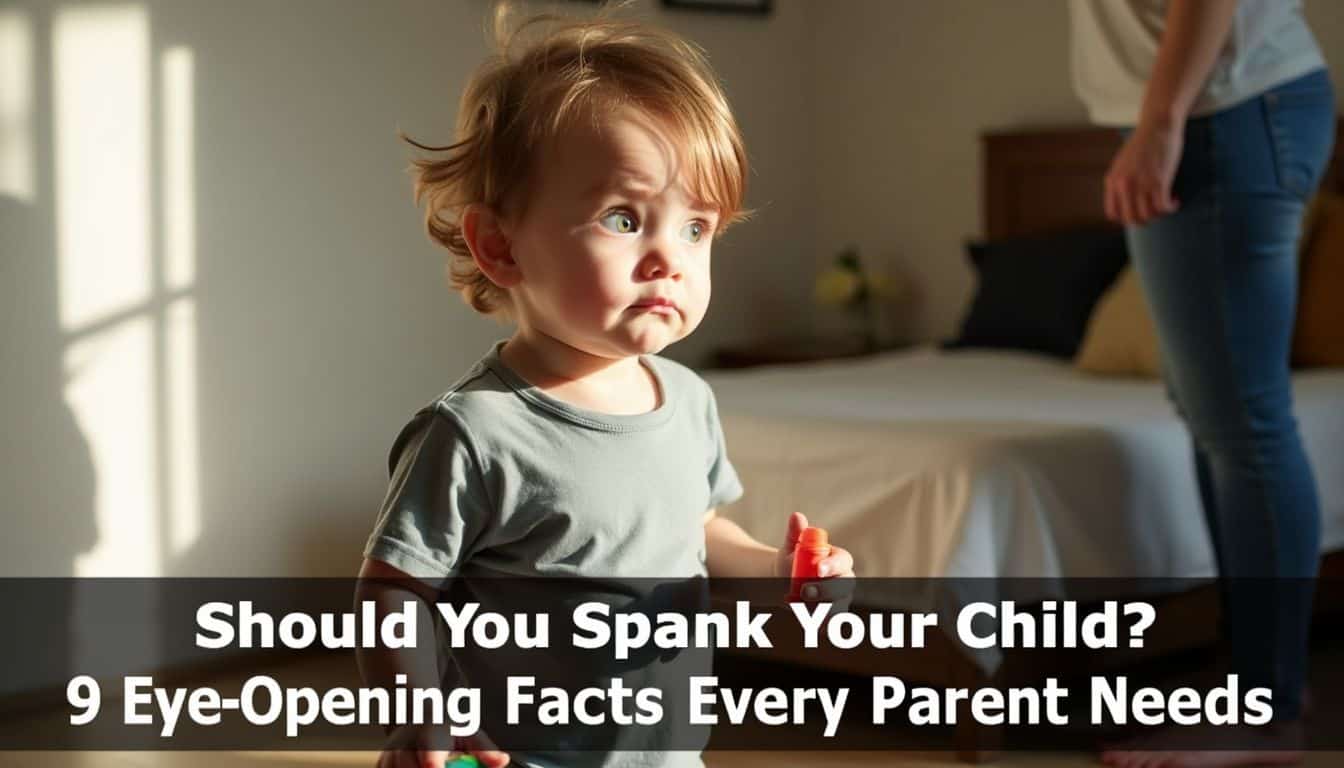Parenting is tough, and discipline can be a real head-scratcher. Should you spank your child? It’s a hot-button issue that’s got parents everywhere scratching their heads. Did you know that about 75% of kids aged 2-4 worldwide face some form of violent punishment? Yikes! This article will shed light on 9 eye-opening facts about spanking – the good, the bad, and the surprising.
Buckle up, parents!
Key Takeaways
About 75% of kids aged 2-4 worldwide face violent punishment, but experts say spanking can harm children’s mental health and behavior long-term.
128 countries have banned spanking, while 69 still allow it. In the U.S., 65% of toddlers still get spanked, with Black families using it twice as often as White or Latinx families.
The American Psychological Association and pediatricians advise against spanking, recommending positive reinforcement and clear boundaries instead.
Studies show spanked kids may have more aggression, anxiety, and depression later in life. One study of 3,000 twin pairs found spanking linked to more aggression, even when genetic factors were ruled out.
Religious views on spanking vary, with some citing Bible verses supporting it while others emphasize loving guidance. About 21% of parents seek advice on discipline from religious leaders.
Table of Contents
Defining Discipline

Discipline isn’t just about punishment. It’s about teaching kids right from wrong and helping them grow into good people. Parents often struggle with this… but there are ways to guide your child without spanking.
Meaning of Discipline
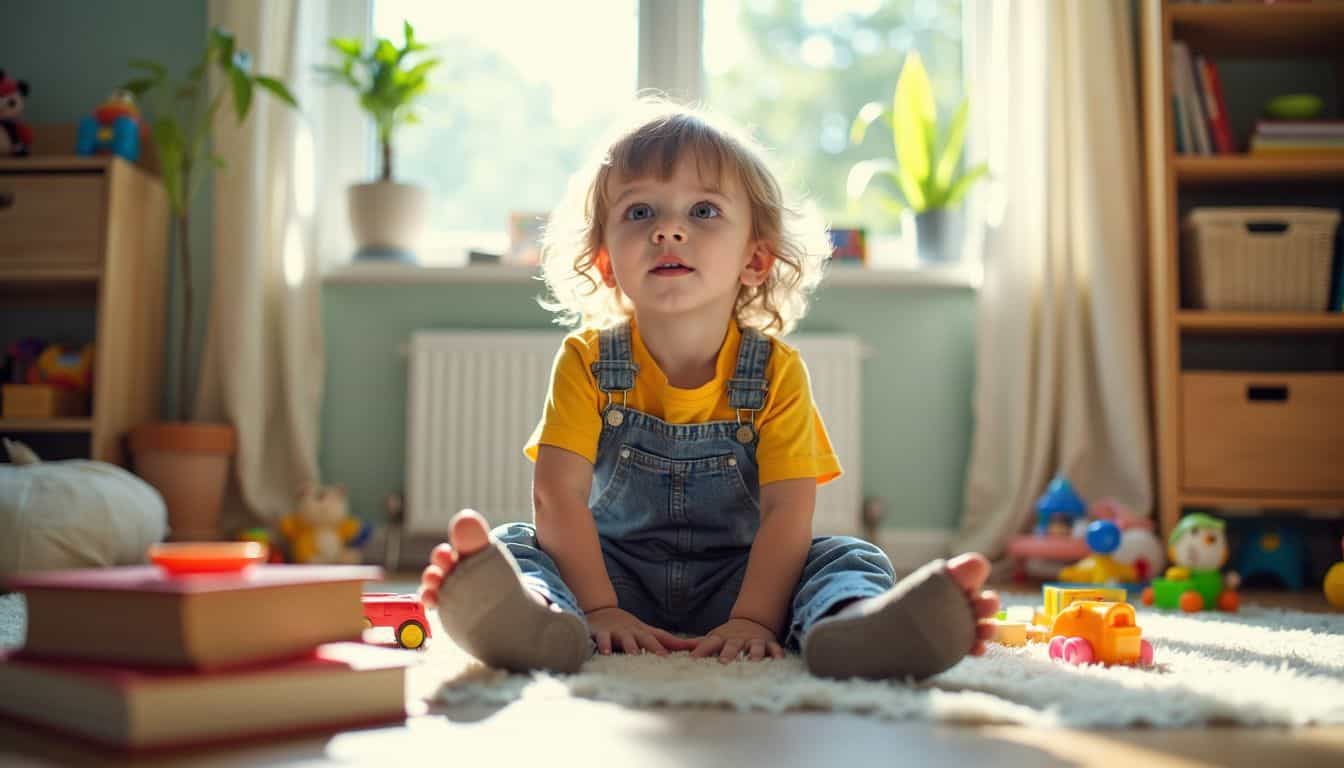
Discipline isn’t about punishment. It’s about teaching kids right from wrong. Good discipline helps children learn self-control and make good choices. Parents use discipline to guide their kids, not to hurt them.
The goal is to help children grow into responsible adults.
Discipline is helping a child solve a problem. Punishment is making a child suffer for having a problem. – Dr. Thomas Gordon
Effective discipline builds trust.
Parents who use positive discipline often have closer bonds with their children.
Role of Discipline in Child Growth

Discipline plays a key role in shaping a child’s growth and future. It’s not about harsh rules or ‘diaper punishment‘. Instead, it’s about teaching kids right from wrong and helping them learn self-control.
Good discipline guides children to make smart choices on their own. It builds their confidence and helps them get along with others better.
Studies show that positive discipline leads to better outcomes for kids. Children who receive consistent, fair discipline tend to do better in school and have fewer behavior problems.
They also develop stronger bonds with their parents. On the flip side, physical punishment like spanking can harm kids. It’s linked to more aggression, anxiety, and even depression in children as they grow up.
Experts say gentle guidance works much better than harsh methods for raising happy, healthy kids.
Historical Views on Spanking
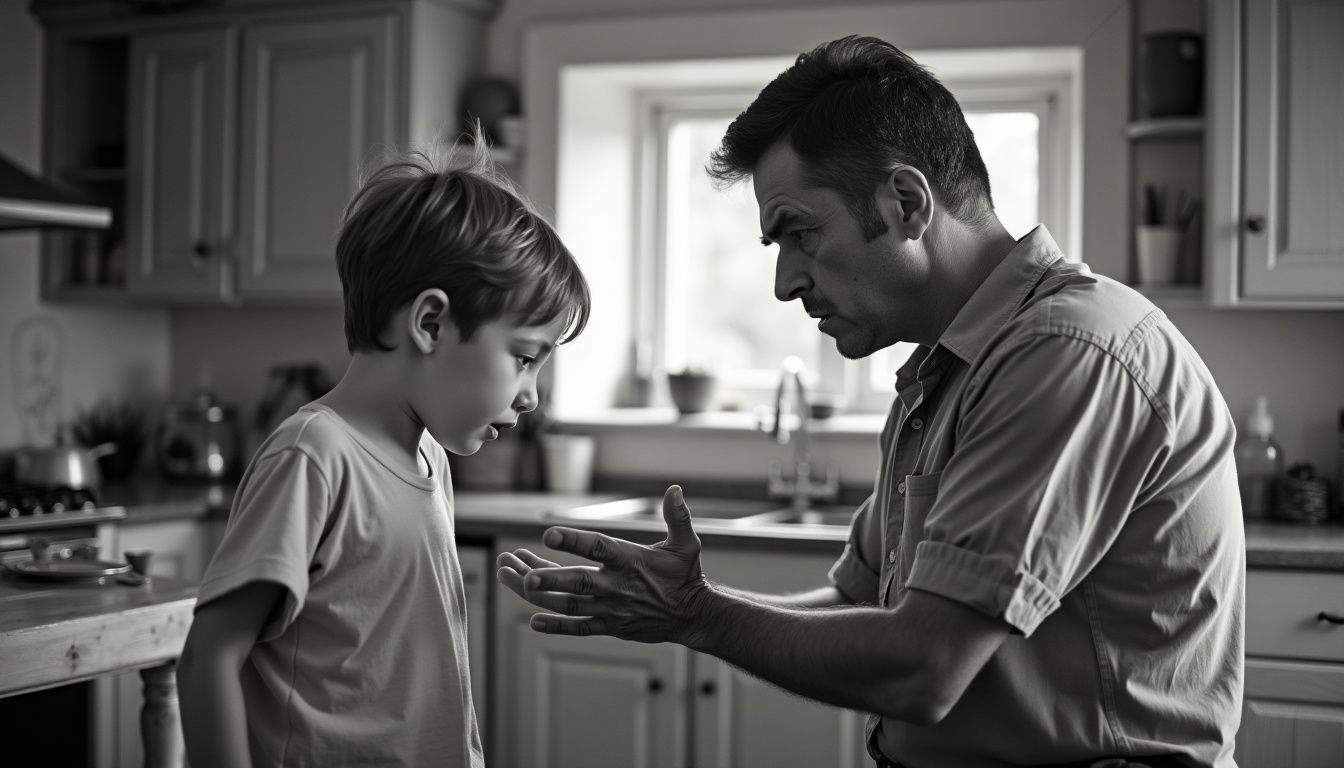
Spanking kids used to be normal. But times have changed… a lot. People’s views on hitting children have shifted big time over the years.
Traditional Beliefs About Corporal Punishment

Spare the rod, spoil the child. This old saying sums up how many folks used to think about spanking kids. Back then, most parents believed a good whack was the best way to teach right from wrong.
They thought it’d make kids behave and grow up to be good adults. I remember my grandpa saying he got the belt as a kid and “turned out just fine.”
Children are like wet cement. Whatever falls on them makes an impression. – Dr. Haim Ginott
Times have changed, but some old ideas stick around. A whopping 76% of men and 65% of women in the U.S. still think spanking is needed to raise kids right. Many folks who approve of it say, “I was spanked, and I’m okay.” They worry today’s kids are worse behaved than ever.
But experts now say there are better ways to discipline that don’t involve hitting.
Evolution of Attitudes Towards Spanking

As views on kids changed, so did thoughts on spanking. People started to see children as more than just property. This shift began slowly but picked up speed in the 20th century. By 1974, the U.S. finally made child abuse illegal.
Today, many countries are banning spanking altogether. Experts now say it can hurt kids in the long run. They point to better ways to teach good behavior. Still, some parents stick to old habits.
It’s a hot topic that sparks debate among families, doctors, and lawmakers alike.
Psychological Effects of Spanking
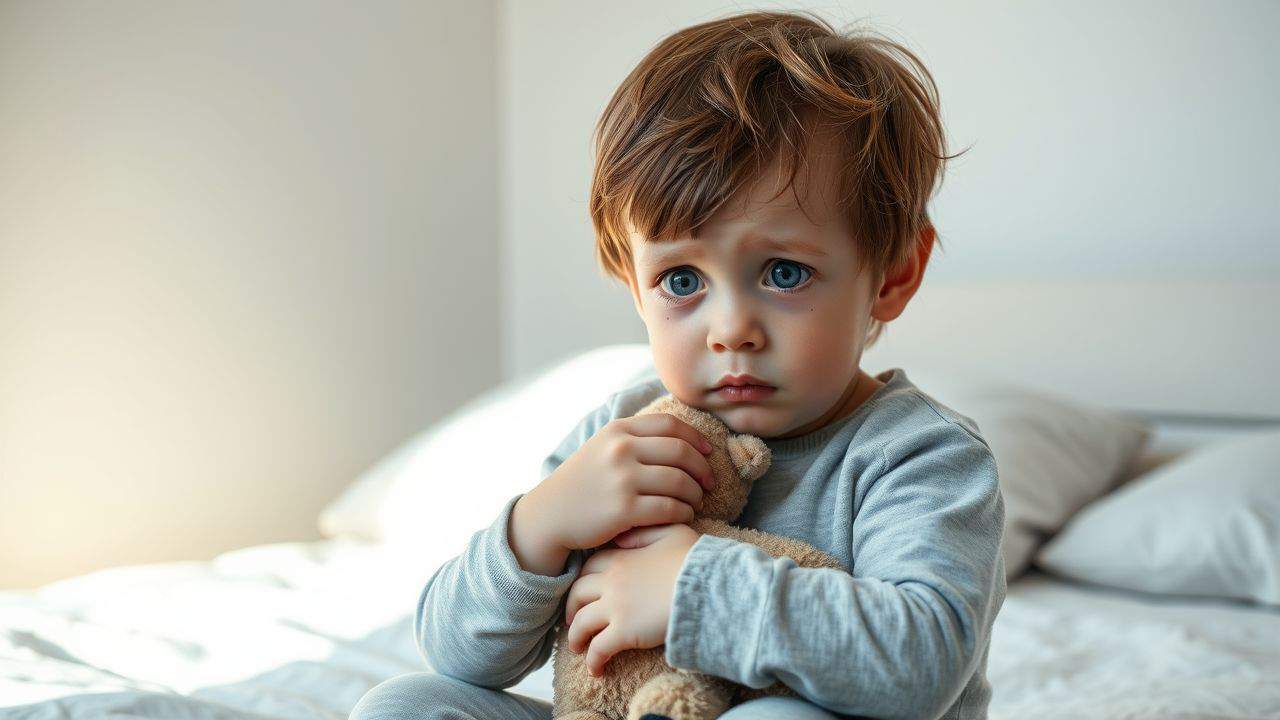
Spanking can leave lasting marks on a child’s mind. It might seem to work at first, but it can lead to bigger problems down the road.
Immediate Behavioral Outcomes in Children
Spanking often leads to quick changes in a child’s behavior. Kids might stop what they’re doing right away out of fear. But this doesn’t mean they’ve learned why their actions were wrong.
Studies show that spanked children may act out more in the long run. They might become more aggressive or defiant.
Brain scans reveal some worrying facts. Spanked kids show higher brain activity in areas linked to fear and stress. This is similar to what happens in kids who face severe abuse. These brain changes can affect how children handle emotions and react to threats.
Next, let’s look at how spanking impacts kids as they grow up.
Long-Term Psychological Effects
While quick fixes may seem tempting, the long-term effects of spanking can be tough to swallow. Kids who get spanked often grow up with more problems. They might act out more, feel sad a lot, or have trouble in school.
It’s like planting a seed of anger that grows over time.
I’ve seen this firsthand with my nephew. His parents used to spank him, and now as a teen, he struggles with anxiety and lashes out at others. Studies back this up, too. One found that adults who were spanked as kids had higher odds of mental health issues and even physical health problems.
It’s not just about the sting of the moment – spanking can leave lasting scars on a child’s soul.
Legal Context and Social Views on Spanking
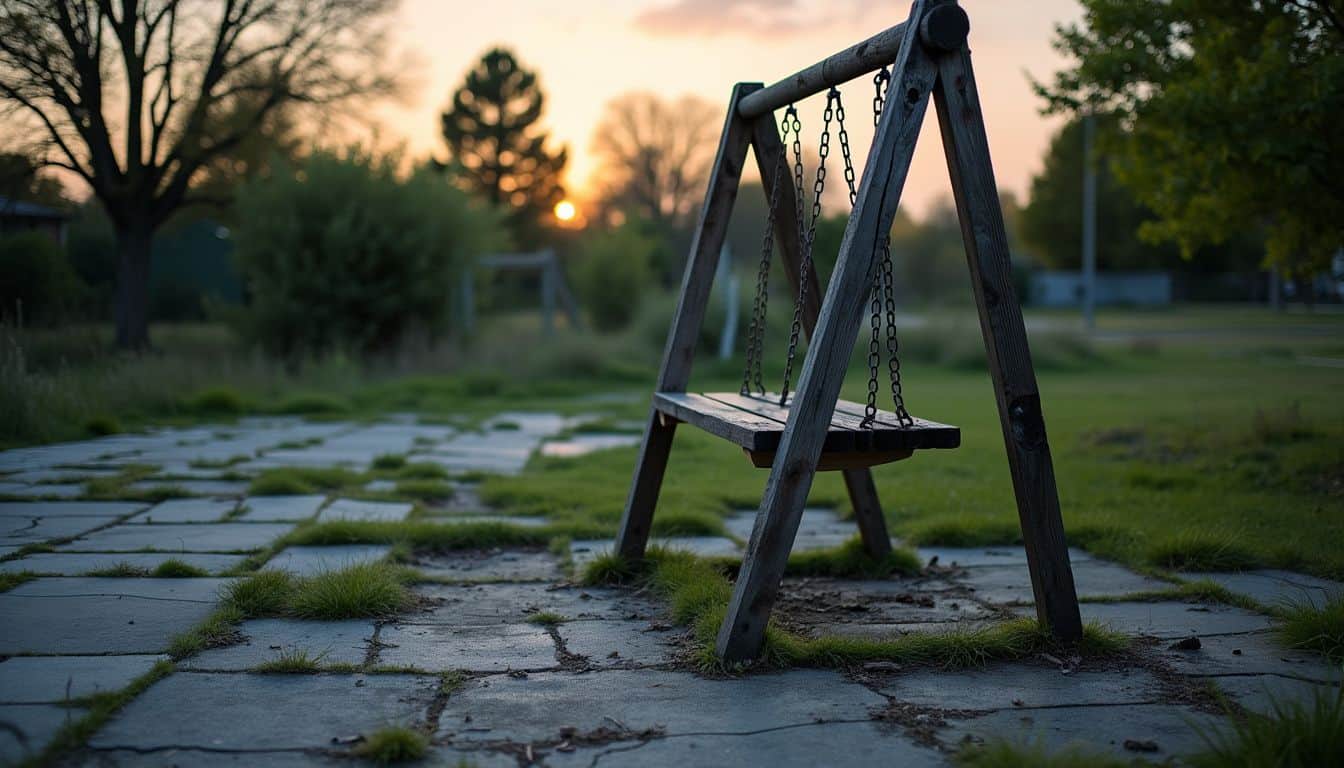
Laws on spanking differ worldwide. Some countries ban it outright, while others let parents decide. Public opinion on spanking varies, too – it’s a hot topic that sparks debate in many circles.
Worldwide Legal Stances on Corporal Punishment
Spanking laws vary widely around the globe. Let’s take a look at how different countries handle this hot-button issue.
| Region | Legal Status | Notable Examples |
|---|---|---|
| Europe | Mostly banned | Sweden (first to ban in 1979), Germany, Spain |
| North America | Mixed | Canada (banned), USA (legal in all states) |
| South America | Mostly banned | Brazil, Argentina, Venezuela |
| Africa | Mostly legal | South Africa (banned), Botswana (92% use rate) |
| Asia | Mixed | Japan (banned), Singapore (legal) |
| Oceania | Mixed | New Zealand (banned), Australia (legal) |
Globally, 128 countries have outlawed spanking, while 69 still allow it. That’s a big shift from just a few decades ago! Next up, let’s explore how different cultures view this practice.
Cultural Opinions on Spanking
While laws vary worldwide, cultural views on spanking differ too. In the U.S., opinions split along racial lines. A 2015 Pew study found Black families use physical punishment twice as often as White or Latinx families.
This gap reflects deep-rooted cultural beliefs about discipline.
Across the globe, attitudes are changing. More folks see spanking as harmful, not helpful. But old habits die hard. In some places, it’s still seen as good parenting. The debate rages on, with 65% of U.S. toddlers still getting spanked.
Culture shapes how we raise kids, but science is pushing for change.
Discipline is about teaching, not punishing. – Unknown
Non-Spanking Discipline Techniques
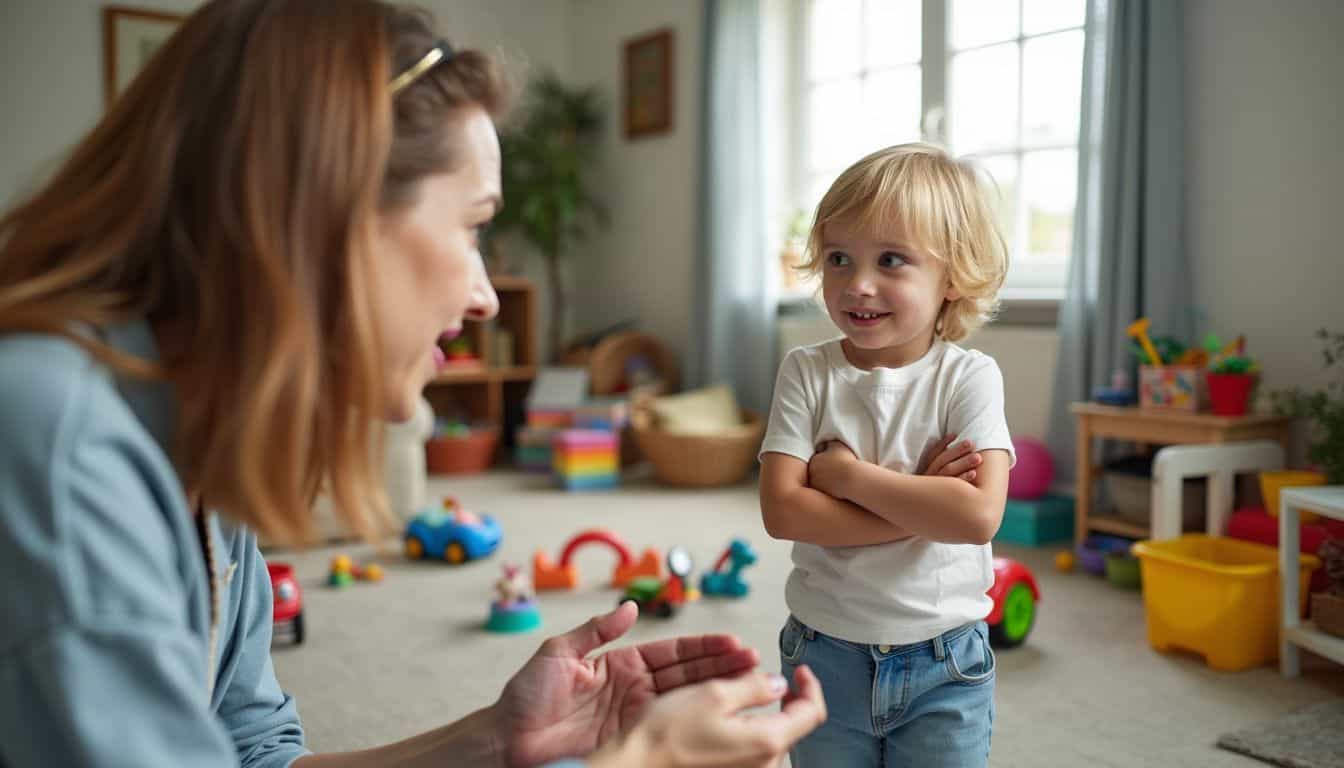
There’s more to discipline than just spanking. Parents have a toolbox of tricks to shape good behavior without raising a hand.
Positive Reinforcement Strategies
Positive reinforcement works wonders for kids. It’s simple – catch them being good and praise them for it. Say your child cleans up their toys without being asked. Give them a high-five and say, “Great job putting your toys away!” This makes them feel good and want to repeat that behavior.
You can also use small rewards like stickers or extra playtime. The key is to be specific about what they did right. Don’t just say “good job” – tell them exactly what impressed you.
Mix up your praise to keep it fresh. Use words, gestures, and little treats. Pat them on the back, give a thumbs up, or let them choose dessert. The goal is to make good behavior feel rewarding.
Kids thrive on attention, so make sure they get lots of it for positive actions. This strategy takes practice, but it pays off big time. Your child will start to seek out ways to earn your approval through good choices.
Establishing Boundaries and Expectations
Setting clear rules is key for kids. Parents need to lay out what’s okay and what’s not. This helps children feel safe and know what to expect. It’s like drawing a line in the sand – kids learn where they can play and where they can’t.
But it’s not just about saying “no.” It’s also about showing kids what good behavior looks like.
Consistency is crucial when setting boundaries. If a rule applies on Monday, it should apply on Friday too. This helps kids understand and follow the rules better. It’s also important to explain why rules exist.
“We don’t hit because it hurts others” teaches empathy along with the rule. As kids grow, involve them in making some family rules. This helps them feel respected and more likely to follow the rules they helped create.
Alternative Correction Methods
Parents have many tools to correct kids without spanking. Time-outs work well for younger children. They give kids a chance to cool off and think about their actions. For older kids, taking away privileges like TV or phone time can be effective.
These methods teach kids that bad choices have consequences, even if they smoke a cigarette.
Positive reinforcement is another great option. Praise good behavior and offer rewards for meeting goals. This encourages kids to make better choices. Some parents use point systems or sticker charts to track progress.
The key is consistency. Stick to the rules you set, and your kids will learn self-control over time. Next, let’s look at what experts say about spanking and discipline.
Expert Insights on Spanking

Experts have a lot to say about spanking. They’ve studied it for years and have some eye-opening findings.
Psychological Associations’ Views
Big names in psychology don’t like spanking. The American Psychological Association (APA) says it’s bad news. They point to loads of studies showing spanking hurts kids. It can mess with their brains, make them act out more, and even cause mental health issues later on.
The APA isn’t alone – other psych groups agree. They say spanking is like a band-aid that doesn’t stick. It might work for a minute, but it doesn’t fix the real problem.
These brain docs have some strong words for parents. They say spanking can change how a kid’s brain works – and not in a good way. It’s like rewiring their little noggins to always be on guard.
This can lead to all sorts of troubles as they grow up. Instead of spanking, these experts push for positive ways to teach kids. They want parents to use words, not hands, to guide their kiddos.
It’s all about building a strong bond and helping kids learn to control themselves.
Pediatricians’ Advice on Discipline
Pediatricians have a clear message for parents: spanking doesn’t work. They point to 20 years of research showing that spanking makes kids more aggressive, not less. It also fails to change bad behavior in the long run.
Instead, docs suggest other ways to teach kids right from wrong.
What do pediatricians recommend? They say positive reinforcement works best. This means praising good behavior and setting clear rules. Time-outs can help for younger kids. For older ones, taking away privileges often does the trick.
The key is to be firm but kind. Yelling or harsh words can hurt a child’s brain growth, so it’s best to stay calm. Next, let’s look at what some parents have to say about discipline.
Stories from Parents

Parents have stories that’ll make you laugh… and cry. Some swear by spanking, while others say it’s a big no-no. Their real-life tales show how tricky it is to raise kids right.
Parental Testimonials
Parents often share mixed feelings about spanking. Some say it worked for them as kids, so they use it too. Others feel guilty after spanking and wish they had better tools. One mom told us, “I spanked my son once and felt awful.
His sad eyes haunted me for days.” Another dad shared, “Time-outs work better for us. My kids actually learn from their mistakes now.”
These real stories show how tricky discipline can be. No parent has all the answers. But many find that talking and setting clear rules works better than hitting. As one mom put it, “We ditched spanking and now have less yelling and more hugs.
It’s not perfect, but it feels right for our family.
Case Studies on Discipline
Case studies on discipline show mixed results. One study looked at 160 families over six years. It found that kids who got spanked often had more behavior problems later. They also struggled more in school.
But not all studies agree. Some found that light spanking, done calmly, didn’t harm kids much.
Another case tracked 3,000 pairs of twins from age 5 to 7. It aimed to separate spanking’s effects from genes. The results? Spanking linked to more aggression in kids, even with genetic factors ruled out.
These studies help parents see real-world impacts of different discipline styles. They offer food for thought on what works best for families.
Influence of Religion on Discipline
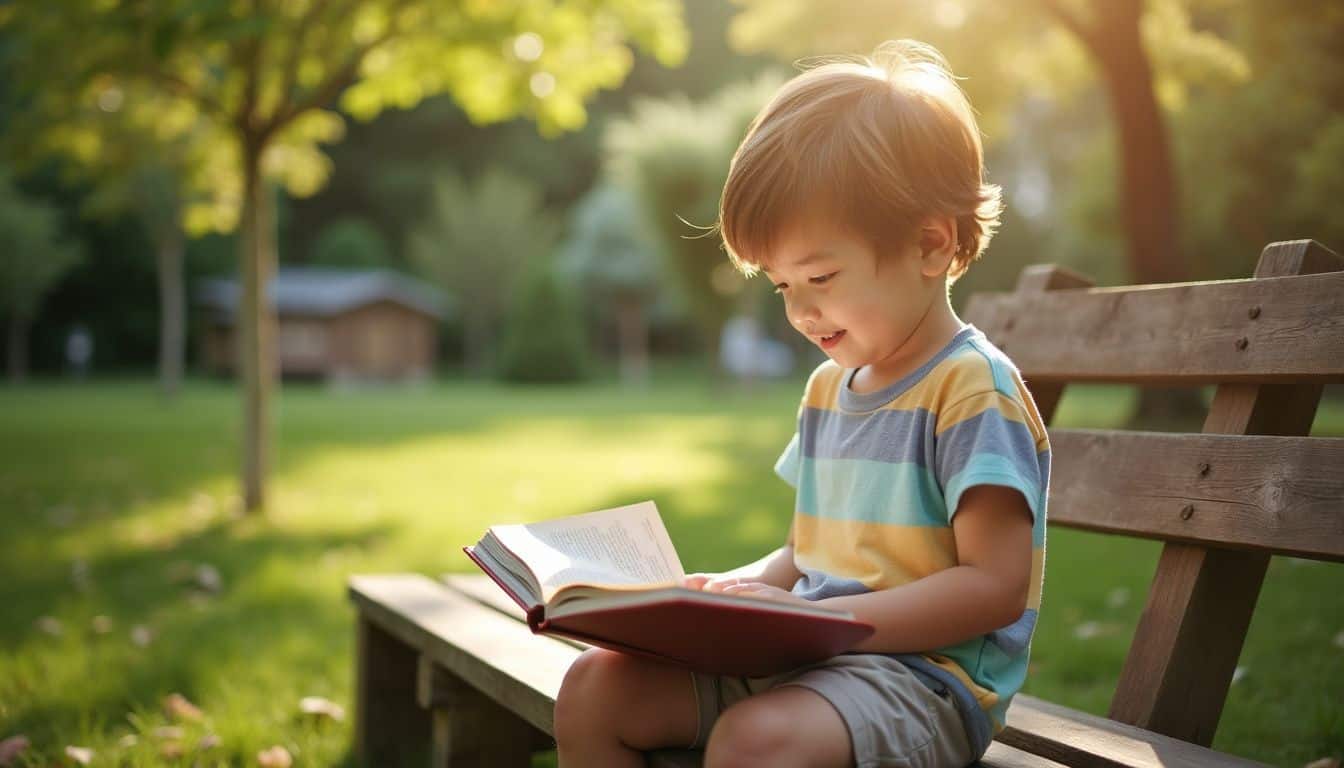
Faith shapes how we raise kids. Some holy books talk about using the rod, while others preach love and patience.
Biblical Views on Physical Punishment
The Bible talks about spanking as a form of discipline. Proverbs 13:24 says, “Whoever spares the rod hates their children, but the one who loves their children is careful to discipline them.” This verse links love with discipline.
But it’s key to note that the Bible never supports abuse. It speaks of correction done with care and love, not anger or harm.
Other Bible passages also touch on this topic. They stress teaching kids right from wrong through loving guidance. The goal is to help children grow, not to punish or hurt them. Some Christians see these verses as support for spanking.
Others view them as calls for firm, but gentle discipline. Next, let’s look at how experts view spanking and its effects on kids.
Religious Leaders’ Thoughts on Spanking
Moving from biblical views, let’s look at what today’s religious leaders say about spanking. Many faith leaders have strong opinions on this hot topic. Some back it up, while others speak out against it.
About 21% of parents ask religious leaders for advice on discipline. This shows how much people trust their faith guides on parenting issues. But views differ widely. Some leaders say spanking is okay if done right.
Others think it goes against their faith’s teachings on love and kindness. The debate gets heated at times. It’s clear that religion plays a big role in how people think about spanking their kids.
People Also Ask
Is spanking a form of child abuse?
Many experts say yes. Spanking can lead to childhood trauma and is often seen as physical abuse. It’s linked to mental health problems and lower self-esteem in kids.
What does science say about spanking?
Brain imaging studies show spanking can harm a child’s growth. It may cause issues with emotion regulation and self-control. Kids who are spanked often show more aggression and antisocial behavior.
Are there religious views on spanking?
Some religious folks support spanking, citing scriptures. Others, like Pelagius (condemned as a heretic), opposed it. Jesus never endorsed hitting kids. The debate touches on ideas of original sin and human nature.
How does spanking affect long-term health?
Spanking is an adverse childhood experience. It’s tied to higher risks of cancer, heart disease, and even COPD later in life. It can also lead to substance abuse and suicidal thoughts.
What are better alternatives to spanking?
Experts suggest authoritative parenting. This means setting clear rules but also showing love. It helps build secure attachment and boosts prosocial behavior. Early intervention can help parents learn these skills.
Is spanking legal everywhere?
No. Many countries ban corporal punishment in schools and homes. They see it as violating children’s rights. In some places, spanking can lead to charges of domestic violence or emotional abuse.
References
https://www.ncbi.nlm.nih.gov/pmc/articles/PMC2719514/
https://www.ncbi.nlm.nih.gov/pmc/articles/PMC3447048/
https://www.ncbi.nlm.nih.gov/pmc/articles/PMC4945859/
https://www.developmentalscience.com/blog/2022/2/10/hitting-children-leads-to-trauma-not-better-behavior (2022-02-10)
https://www.ncbi.nlm.nih.gov/pmc/articles/PMC7992110/
https://www.ncbi.nlm.nih.gov/pmc/articles/PMC8237681/
https://www.gse.harvard.edu/ideas/usable-knowledge/21/04/effect-spanking-brain (2021-04-13)
https://www.apa.org/monitor/2012/04/spanking
https://www.ncbi.nlm.nih.gov/pmc/articles/PMC9014670/
https://www.ncbi.nlm.nih.gov/pmc/articles/PMC5560991/
https://journalistsresource.org/education/corporal-punishment-schools-discipline-research/
https://www.ncbi.nlm.nih.gov/pmc/articles/PMC3768154/
https://www.ncbi.nlm.nih.gov/pmc/articles/PMC8323829/
https://health.clevelandclinic.org/pediatricians-say-dont-spank-your-kids-heres-why-what-to-do-instead (2022-01-27)
https://www.chhs.niu.edu/child-center/resources/articles/alternatives-to-spanking.shtml
https://nortonchildrens.com/news/spanking-discipline/
https://sharperiron.org/comment/39863 (2012-01-17)
https://www.leyadelray.com/2021/05/15/is-it-biblical-to-spank-your-kids/ (2021-05-15)
